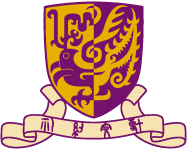Urban and Regional Development
The industrial revolution and its concomitant version of capitalist development have led to many environmental and social problems at different geographical scales. Sustainable development is an urgent issue to be considered in the rapidly transforming cities and regions especially in Hong Kong, the Guangdong-Hong Kong-Macao Greater Bay Area and China. GRM has a very strong research focus on urban and regional studies at different geographical scales. The interdisciplinary research team in GRM has an intense interest to explore how urban planning can help transform urban spaces and places for not only economic growth but also environmental sustainability and social justice. The team is endeavoured to become a leading research hub that will provide, among other things, a uniquely Asian perspective in the theories and practices of urban planning and regional development to achieve sustainability. The team will not only engage cutting-edge literature but also attempt to generate insightful and significant research findings for theory building, policy recommendations and practical suggestions for multi-scalar stakeholders, especially those in Hong Kong, the Guangdong-Hong Kong-Macao Greater Bay Area and China.
Faculty Members:
Prof. CHUNG King Lam, Calvin
Politics of urbanisation; Urban political ecology and environmental governance
Prof. KWAN Mei-Po
Health, transport and social issues in cities; Environmental impacts on human health
Physical Environment and Resource Management
The atmosphere, hydrosphere, lithosphere and biosphere of the Earth are constantly interacting with each other in shaping our physical environment and providing ecosystem services that are indispensable to human well-being. The expertise of our team members in the strategic research area of Physical Environment and Resource Management covers various fields of physical geography, such as atmospheric science, biogeosciences, ecology, geomorphology, hydrology and pedology. The team endeavour to study the characteristics and processes of the physical environment, and their response to various natural and anthropogenic perturbations at various spatio-temporal scales using a variety of methods and tools, including field monitoring and measurements, laboratory experiments, remote sensing, as well as statistical and dynamic modelling. The team also strive to conduct impactful research that centres around the sustainable management and planning of multiple natural resources, including ecological, geological, hydrological, energy and tourism resources. The team will continue to put Hong Kong and the Greater Bay Area as our regional focus and develop science-based and practical solutions for achieving sustainable development and carbon neutrality.
Faculty Members:
Prof. CHAN Chung-shing (Johnson)
Sustainable tourism; Place branding; Multi-sensory tourism; Accessible tourism
Prof. FUNG Tung
Remote Sensing image feature selection and image classification; Mapping and monitoring of vegetation communities with integrated geospatial data
Prof. LEE Fung, Harry
Socio-economic and demographic impacts of climate change in ancient and recent human history; Historical epidemiology
Prof. MARAFA, Lawal M.
Tourism and Environment; Natural Resource Management (Forest Landscapes, Soundscapes and Tranquility)
Geo-spatial Data Science
Using satellite imagery, GIS, and big data, e.g., social media and human trajectories, the Geospatial Data Science (GDS) Area of Concentration (AoC) aims to develop advanced spatiotemporal analytical models for monitoring and modeling urban and environmental phenomena, such as land use, urban heat islands, and air pollution. The research integrates geographic information science with statistics, optimization, and artificial intelligence into a unified framework of spatiotemporal analytics, which provides a solid scientific foundation for a wide spectrum of urban, environmental, and public health applications.
GDS has made major advances in understanding the interactions between space and time and establishing an integrated framework of urban change detection, analysis, and prediction. One of our key research areas has been the spatiotemporal modeling of urban heat islands and air pollution in association with socio-economic and environmental factors through conducting a series of national and international research projects. As a result, our work has made important contributions to the understanding of urban environmental phenomena and related urban management practices.
Faculty Members:
Prof. FUNG Tung
Remote Sensing image feature selection and image classification; Mapping and monitoring of vegetation communities with integrated geospatial data
Prof. HUANG Bo
Spatiotemporal data modeling; Big spatial data analytics for resilient and sustainable urban development
Prof. KWAN Mei-Po
Health, transport and social issues in cities; Environmental impacts on human health
Smart Sustainable Cities
This strategic area brings in a team of researchers from the Department of Geography and Resource Management and the Urban Studies Programme. The research interests of this interdisciplinary team mainly focus on urban planning, urban studies, transport planning and policy, environmental planning, GIS, data science and urban analytics. In the era of smart cities, new information, knowledge and perspectives are required to tackle the challenges that our cities and habitats are facing. With rapid advancement in technology and innovation, there are influxes of new and emerging urban data to be analysed for informed decisions in urban governance to make our cities more liveable and sustainable. The faculty members in this strategic area are conducting innovative research to move our cities towards sustainability, equity, diversity and inclusiveness. The team is specialised in linking theories, empirical studies, practical applications and policy implications together, aiming to make an impact to the society. With diverse backgrounds, our faculty members are active in many international associations and research networks, which channels the state-of-the-art knowledge and the latest development of smart cities from research institutes around the world to CUHK.
Faculty Members:
Prof. CHUNG King Lam, Calvin
Politics of urbanisation; Urban political ecology and environmental governance
Prof. FUNG Tung
Remote Sensing image feature selection and image classification; Mapping and monitoring of vegetation communities with integrated geospatial data
Prof. HUANG Bo
Spatiotemporal data modeling; Big spatial data analytics for resilient and sustainable urban development
Prof. KWAN Mei-Po
Health, transport and social issues in cities; Environmental impacts on human health
Prof. MARAFA, Lawal M.
Tourism and Environment; Natural Resource Management (Forest Landscapes, Soundscapes and Tranquility)

